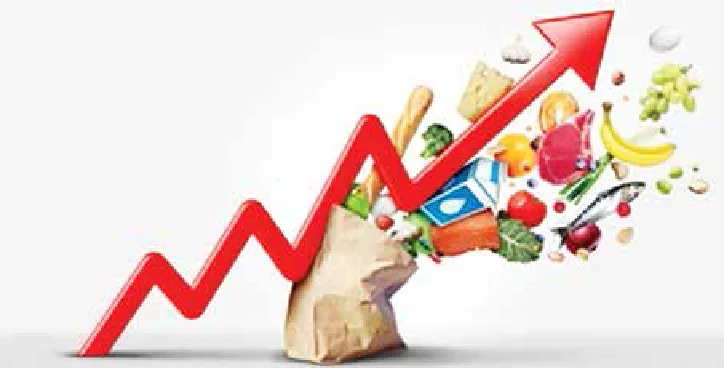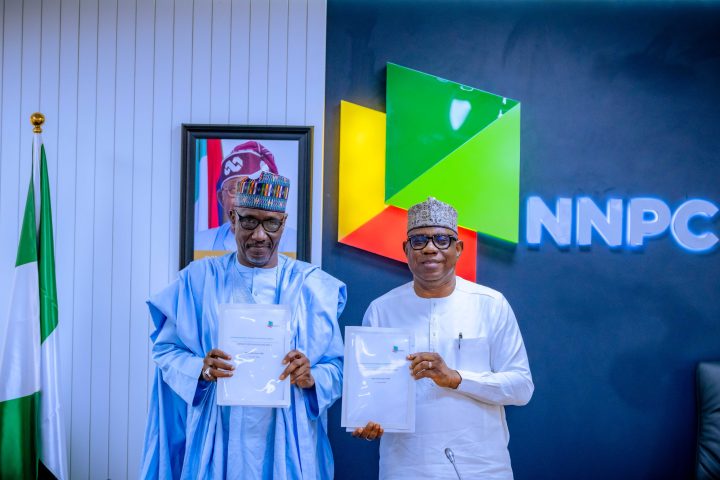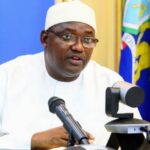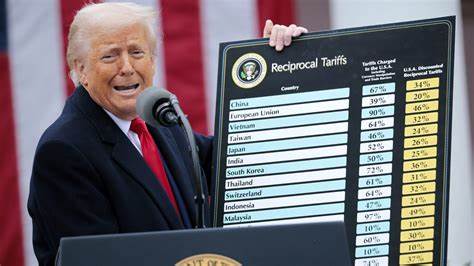The Ineffectiveness of CBN’s Rate Hikes
As Nigeria faces its worst economic crisis in years, the Central Bank of Nigeria (CBN) has turned to aggressive interest rate hikes, hoping to curb inflation. However, the results so far raise a pressing question: is the CBN’s monetary tightening actually helping, or is it making an already dire situation worse?
The Monetary Policy Rate (MPR) was increased by 850 basis points in 2024, reaching a record high of 27.25%. Yet, inflation remains on the rise. Food prices, fuel costs, and the general cost of living continue to skyrocket, leading many Nigerians to question whether the CBN’s approach is appropriate.
Join our WhatsApp ChannelAccording to financial analyst, Abdulbasit Shuaib, “The CBN has misunderstood the nature of Nigeria’s inflation problem. Their focus on raising interest rates addresses demand, but the real issue here is supply.”
The Impact on Businesses and Households
The effects of these rate hikes are being felt across the economy. Small and Medium-sized Enterprises (SMEs), which are vital to Nigeria’s economic growth, are struggling with the high cost of borrowing. A recent CBN survey revealed that 98% of businesses reported obstacles to growth, citing insecurity, high interest rates, and complicated regulatory processes as their main concerns.
“The cost of taking out a loan has become too high for many businesses,” said a local SME owner. “We need support to grow, not higher costs that stifle our potential.”
While higher interest rates are intended to reduce spending and cool down inflation, they are also reducing the ability of businesses to invest in growth. This has a ripple effect on job creation, wages, and overall economic stability.
Supply-Side Issues: The Root Cause of Inflation
One of the most glaring issues with the CBN’s strategy is its failure to address the structural causes of Nigeria’s inflation. Rising prices in Nigeria are not primarily driven by excessive demand but by supply-side challenges. Agricultural productivity remains low due to poor infrastructure and insecurity, particularly in rural areas. Floods and droughts have further exacerbated the situation, making food items more expensive and scarce.
“Farmers can’t access their land because of insecurity. Crops are being lost, and supply chains are disrupted. How do we expect prices to come down when the supply of goods is this constrained?” asked Binta Musa, an agricultural economist.
The removal of energy subsidies has also compounded the problem. While necessary for fiscal consolidation, the removal has led to increased transportation and production costs, which are passed on to consumers. As a result, households are now spending an even larger portion of their income on basic necessities like food and fuel.
Global Comparisons: What Can Nigeria Learn?
Nigeria is not alone in grappling with inflationary pressures, but many other countries have adopted more balanced approaches. For example, India has combined moderate interest rate hikes with significant investments in agricultural infrastructure. Kenya has expanded social safety nets, directly supporting vulnerable citizens during inflationary periods. Even in the United States, which has a far more robust economy, rate hikes have been paired with targeted fiscal interventions, such as infrastructure spending, to maintain growth while managing inflation.
These examples show that monetary policy is only part of the solution. “Nigeria needs a more holistic strategy,” Shuaib argued. “We can’t just hike interest rates and expect inflation to disappear. We need to address the underlying issues like poor infrastructure, insecurity, and agricultural inefficiencies.”
A Call for Structural Reforms
To effectively tackle Nigeria’s inflation crisis, it is clear that a more comprehensive approach is required. The government and CBN must work together to implement structural reforms that address the root causes of price pressures. This includes improving agricultural productivity, enhancing security in rural areas, and investing in critical infrastructure like roads, power, and transportation networks.
READ ALSO: Nigeria’s Interest Rate Hike May Continue, World Bank Warns
“Raising interest rates alone isn’t going to solve Nigeria’s inflation problem,” said Musa. “We need investments that will improve the supply of goods, not policies that make life harder for businesses and consumers.”
This is not to suggest that interest rate hikes should be abandoned entirely. They have a role to play, but they must be complemented by more substantive measures. Countercyclical fiscal policies, such as targeted infrastructure investments, could help reduce supply constraints and bring long-term stability to prices.
The Way Forward
Nigeria’s economic challenges are deep-rooted and complex, but there is a path forward. A multi-faceted approach, combining targeted fiscal measures with strategic monetary policy adjustments, is the only way to tackle inflation sustainably. This will require bold and decisive leadership from both the federal government and the CBN.
“The time for incremental changes is over,” Shuaib noted. “We need bold reforms that address the structural issues behind inflation. Only then can we create an economy that is resilient and capable of long-term growth.”
For Nigeria, the stakes are high. Continuing down the current path of aggressive rate hikes without addressing the underlying issues will only deepen the economic crisis. It’s time for the CBN and the government to rethink their strategy and focus on creating a more sustainable, inclusive economy.
“Inflation is not just a problem of numbers—it’s a problem of livelihoods,” Musa concluded. “And the sooner we recognise that, the sooner we can find real solutions.”
Emmanuel Ochayi is a journalist. He is a graduate of the University of Lagos, School of first choice and the nations pride. Emmanuel is keen on exploring writing angles in different areas, including Business, climate change, politics, Education, and others.
- Emmanuel Ochayihttps://www.primebusiness.africa/author/ochayi/
- Emmanuel Ochayihttps://www.primebusiness.africa/author/ochayi/
- Emmanuel Ochayihttps://www.primebusiness.africa/author/ochayi/
- Emmanuel Ochayihttps://www.primebusiness.africa/author/ochayi/



















Follow Us